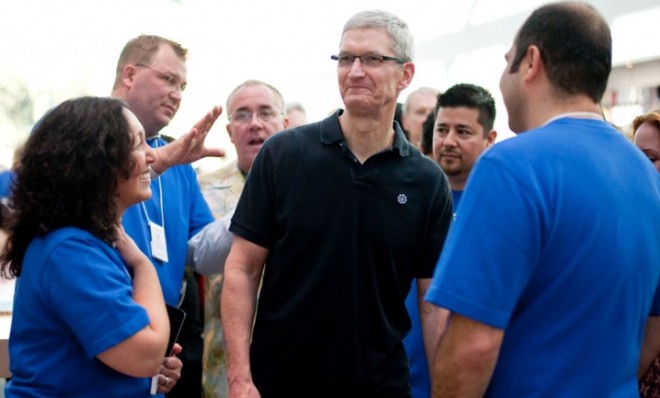Apple's hedge-fund problem: Can the company remain independent?
As Apple's share price falls, hedge fund investors are getting restless


On Thursday, Greenlight Capital, a hedge fund that owns a major stake in Apple, sued the tech giant in an effort to force the company to share more of its wealth with shareholders. The move is the most dramatic evidence yet that hedge funds, which own a large chunk of Apple, are getting very anxious about Apple's falling share price, which has tumbled 35 percent since its peak in September.
The dispute centers on a seemingly narrow issue that has broad implications for Apple. The company wants to limit the issuance of preferred shares, a move that Greenlight manager David Einhorn strongly opposes. Where Einhorn and Apple differ most on the matter is over what Apple should do with its massive hoard of cash, which amounts to $137 billion. With Apple's share price falling, Einhorn is urging the company to essentially compensate its biggest shareholders, many of which, like Greenlight, saw the value of their investment plummet in the past four months. Einhorn claims that if Apple issued $50 billion in preferred shares, with a 4 percent dividend, investors would reap a gain of about $32 per share.
Einhorn went on television this morning to make his case, claiming that Apple was far too parsimonious with its money. "They sometimes feel they can never have enough cash," he said, comparing Apple, which nearly went bankrupt in 1997, to one of his grandmothers who survived the Great Depression. Apple, he said, is like "someone who's gone through traumas."
The Week
Escape your echo chamber. Get the facts behind the news, plus analysis from multiple perspectives.

Sign up for The Week's Free Newsletters
From our morning news briefing to a weekly Good News Newsletter, get the best of The Week delivered directly to your inbox.
From our morning news briefing to a weekly Good News Newsletter, get the best of The Week delivered directly to your inbox.
The brewing battle between Einhorn and Apple is just the latest episode of an ongoing clash between Wall Street and Silicon Valley. As Nathan Vardi at Forbes writes, "Silicon Valley hates being told what to do by money managers in New York. They view guys like Einhorn with suspicion if not downright disdain." But unhappy Wall Street investors have gotten the better of tech companies more than once in the past year. Yahoo, for example, was forced to shake up its management after a hedge fund demanded changes — a move that led to the hiring of Marissa Mayer as CEO, as well as a host of promises to change Yahoo's mission. Suspicions abound that Dell founder Michael Dell took his company private earlier this week because he was afraid an activist investor would boot him out of the company.
Apple isn't in danger of a quasi-takeover by a hedge fund just yet. Einhorn praised Apple as a "phenomenal company filled with talented people creating iconic products that consumers around the world love." But unless Apple's performance on the stock market improves, the company may find itself facing increasingly vocal protests from hedge funds that don't take losing money lightly — and are prepared to fight.
A free daily email with the biggest news stories of the day – and the best features from TheWeek.com
Ryu Spaeth is deputy editor at TheWeek.com. Follow him on Twitter.


